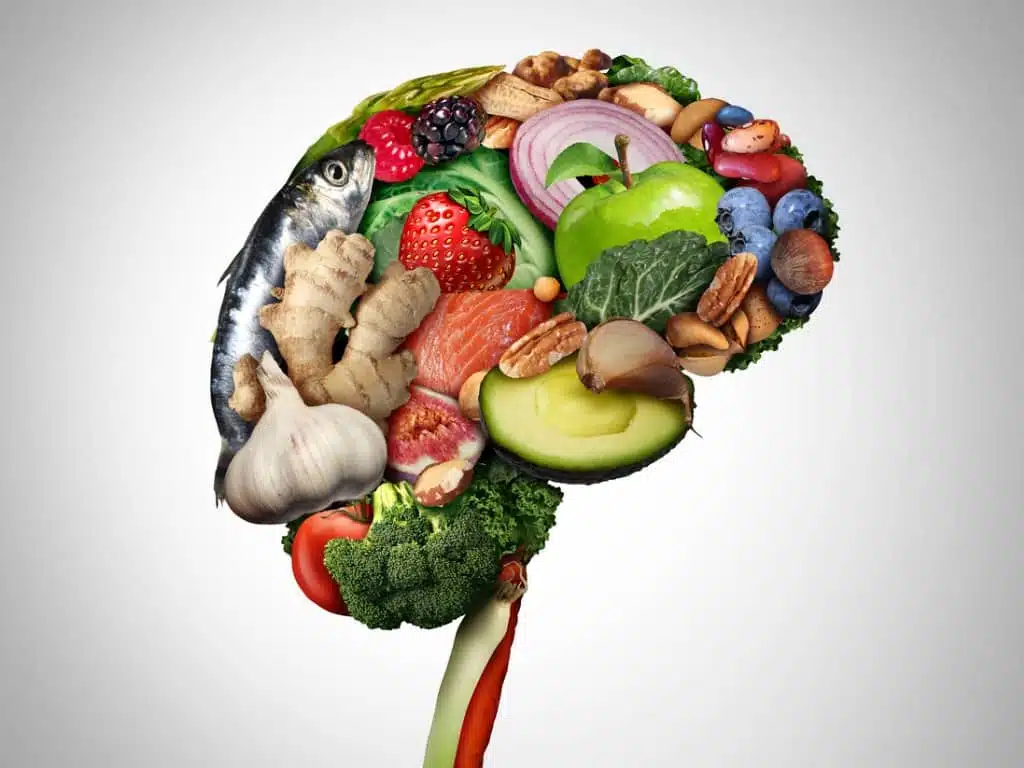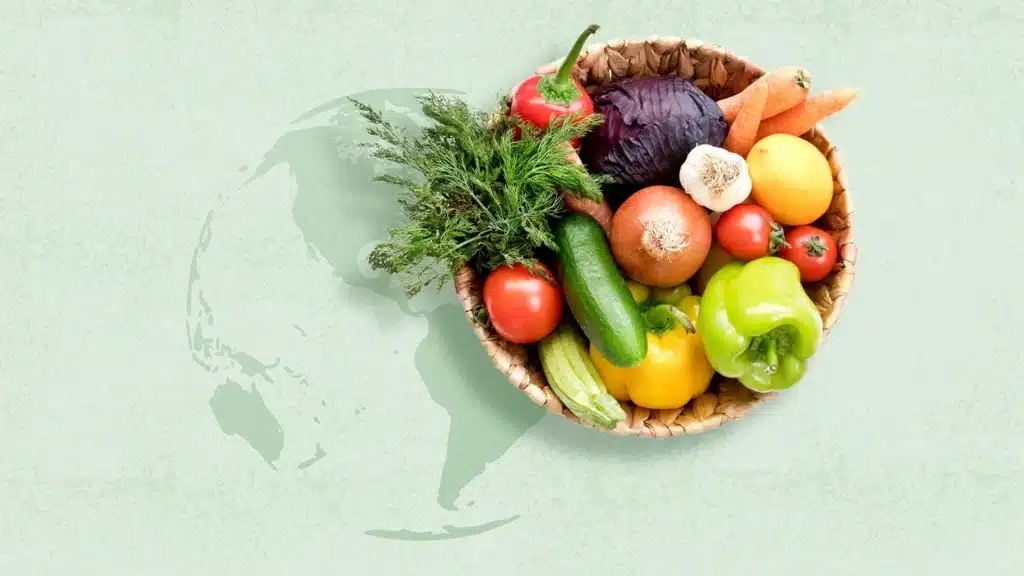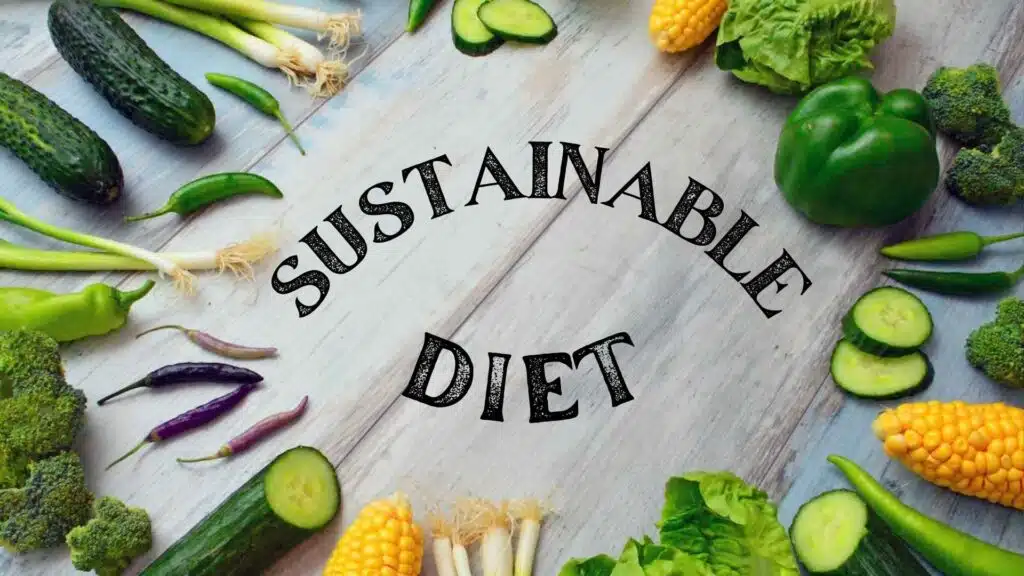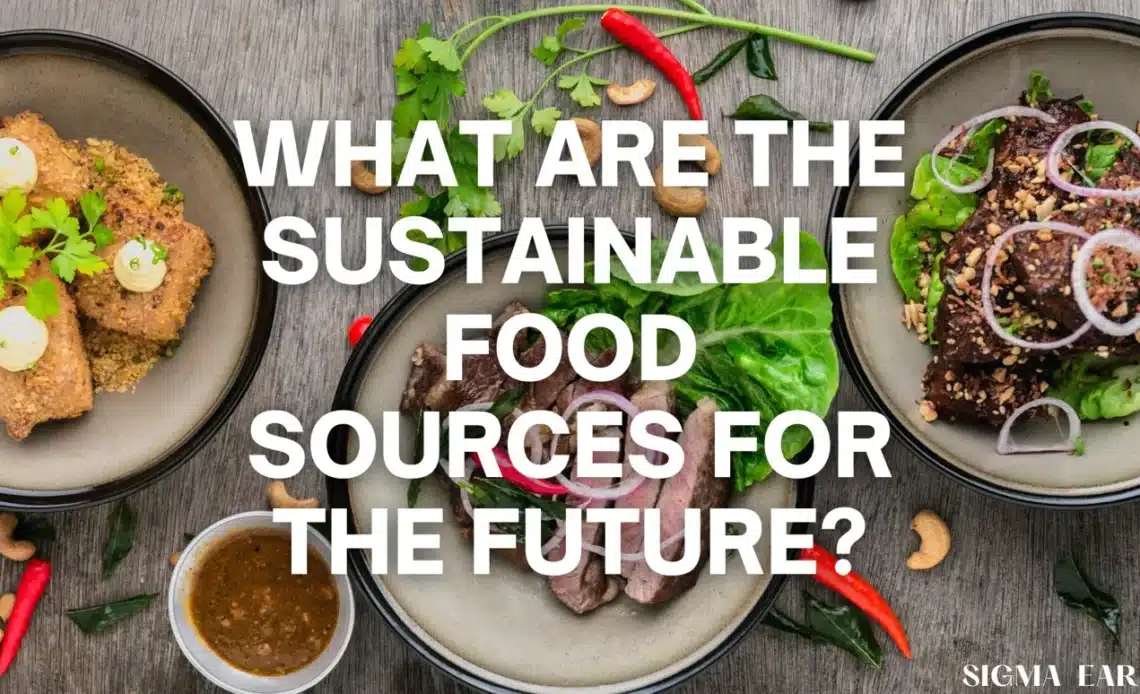In today’s increasingly eco-conscious world, sustainable nutrition has emerged as a powerful approach to eating that benefits both personal health and planetary wellbeing. This comprehensive philosophy extends beyond simple dietary choices to encompass how food is produced, distributed, consumed, and disposed of. With growing concerns about climate change, environmental degradation, and food security, consumers are increasingly seeking foods that align with their values—emphasizing regenerative agriculture, food waste reduction, and climate-resilient supply chains. At SugarDetoxLab, we believe that sustainable nutrition offers a transformative path toward better health for both people and the planet, particularly for those seeking to reduce sugar consumption and embrace whole, minimally processed foods. This article explores how you can make dietary choices that support your health goals while simultaneously contributing to a more sustainable food system.

What Is Sustainable Nutrition and Why Does It Matter?
Defining Sustainable Nutrition
Sustainable nutrition represents a holistic approach to eating that considers the interconnectedness of human health, environmental sustainability, and social equity. The Food and Agriculture Organization (FAO) defines sustainable diets as those with “low environmental impacts that contribute to food and nutrition security and to healthy life for present and future generations” . This approach encompasses multiple dimensions:
- Environmental sustainability: Food production methods that conserve biodiversity, protect ecosystems, and minimize environmental damage
- Nutritional adequacy: Diets that provide sufficient energy and essential nutrients for health and wellbeing
- Economic accessibility: Food systems that provide affordable nutrition for all socioeconomic groups
- Cultural acceptability: Dietary patterns that respect cultural traditions and preferences
The concept gained significant traction following the publication of the EAT-Lancet Commission report in 2019, which presented the first scientific targets for both a healthy diet and a sustainable food system . The report emphasized that widespread adoption of sustainable diets could potentially prevent approximately 11 million premature deaths annually while keeping Earth within planetary boundaries.
The Urgency of Sustainable Food Systems
Our current global food system faces unprecedented challenges. Agriculture occupies approximately 40% of Earth’s ice-free land and accounts for 70% of freshwater withdrawals and 30% of greenhouse gas emissions . Meanwhile, food production must increase by an estimated 56% to meet the demands of nearly 10 billion people by 2050 . This expansion cannot follow traditional patterns without exacerbating environmental degradation, making sustainable approaches not just preferable but essential.
For individuals focused on sugar detoxification and healthier eating, sustainable nutrition offers a valuable framework that aligns personal health goals with broader environmental values. By choosing whole, plant-based foods that are produced sustainably, you can simultaneously reduce your sugar intake, improve your nutritional status, and minimize your environmental footprint.

Health Benefits of Sustainable Nutrition
Personal Health Advantages
Adopting a sustainable diet rich in whole, plant-based foods offers numerous health benefits that align perfectly with sugar reduction goals:
- Reduced chronic disease risk: Diets emphasizing fruits, vegetables, whole grains, legumes, and nuts are associated with lower rates of heart disease, type 2 diabetes, and certain cancers . The high fiber content of these foods helps regulate blood sugar levels, reducing cravings for sweet foods.
- Improved gut health: Plant-forward diets support a diverse microbiome, which research suggests may influence everything from immune function to mental health . A healthy gut microbiome may also help reduce sugar cravings by improving nutrient absorption and regulating appetite hormones.
- Healthy weight management: Whole plant foods are typically less energy-dense than processed foods, allowing for greater food volume with fewer calories . This natural portion control supports weight management without restrictive dieting.
- Enhanced nutrient intake: Minimally processed plant foods provide a wide array of vitamins, minerals, antioxidants, and phytochemicals that are often lost during food processing . These nutrients support overall health and may help reduce inflammation linked to excessive sugar consumption.
Environmental and Planetary Health Benefits
The environmental advantages of sustainable nutrition are equally compelling:
- Reduced greenhouse gas emissions: Plant-based diets generate significantly lower greenhouse gas emissions than animal-based diets. Research indicates that vegan diets can reduce food-related emissions by up to 50% compared to average meat-containing diets .
- Water conservation: Plant foods generally require less water to produce than animal products. For example, producing 1 kg of beef requires approximately 15,000 liters of water, while 1 kg of vegetables requires about 300 liters .
- Preserved biodiversity: Sustainable agricultural practices like regenerative farming support ecosystem diversity rather than depleting it. These methods help maintain healthy pollinator populations and soil microbiomes essential for long-term food security.
- Reduced pollution: Organic and regenerative farming methods minimize synthetic pesticide and fertilizer use, reducing chemical runoff into waterways and soil contamination.

Table: Environmental Impact Comparison of Different Foods
| Food Item | Greenhouse Gas Emissions (kg CO2-eq per kg) | Water Footprint (liters per kg) | Land Use (m² per kg) |
|---|---|---|---|
| Beef | 27.0 | 15,415 | 164.0 |
| Cheese | 13.5 | 5,060 | 87.4 |
| Rice | 3.6 | 1,670 | 3.5 |
| Apples | 0.4 | 822 | 3.6 |
| Lentils | 0.8 | 1,250 | 7.9 |
| Sugar (cane) | 1.5 | 1,130 | 4.2 |
Challenges and Limitations of Sustainable Nutrition
Accessibility and Affordability Barriers
Despite its benefits, sustainable nutrition faces several practical challenges:
- Higher costs: Organic and sustainably produced foods often come with premium price tags, making them inaccessible to lower-income households . This economic barrier represents a significant equity issue in sustainable food systems.
- Limited availability: Food deserts—areas with limited access to affordable, nutritious food—affect approximately 23.5 million people in the United States alone . Even when sustainable options exist, they may not be geographically accessible to all communities.
- Knowledge and skills gap: Preparing meals from whole ingredients requires more culinary knowledge and time than relying on processed convenience foods . This learning curve can be daunting for busy individuals or those with limited cooking experience.
Nutritional Considerations
While plant-based diets offer numerous health benefits, they require careful planning to avoid potential nutrient deficiencies:
- Protein quality: Plant proteins may be incomplete or less bioavailable than animal proteins, requiring strategic combination of different protein sources .
- Micronutrient concerns: Vitamins B12 and D, iron, zinc, calcium, and omega-3 fatty acids may require special attention in exclusively plant-based diets .
- Calorie density: Some whole plant foods are so low in calories that they may not meet energy needs without careful planning, particularly for athletes or those with high metabolic demands.

Systemic and Infrastructure Challenges
Transitioning to more sustainable food systems faces broader structural obstacles:
- Industrial agriculture subsidies: Government policies often favor conventional agriculture over sustainable methods, making unsustainable foods artificially cheap .
- Supply chain limitations: Building resilient, climate-smart supply chains requires significant investment in infrastructure, technology, and workforce development .
- Measurement difficulties: Assessing the true environmental impact of foods remains challenging due to variations in production methods, transportation distances, and processing techniques .
Sustainable Nutrition Strategies and Emerging Trends
Practical Approaches for Everyday Eating
- Prioritize plants: Make vegetables, fruits, whole grains, legumes, nuts, and seeds the foundation of your diet. Aim for at least 75% plant-based foods on your plate .
- Choose sustainable proteins: When consuming animal products, opt for sustainably raised options. Consider reducing portion sizes and frequency of consumption while increasing plant protein sources like lentils, beans, and tofu.
- Embrace seasonal and local foods: Support regional food systems by choosing seasonal produce from local farmers. This reduces transportation emissions while often providing fresher, more nutrient-dense options.
- Reduce food waste: Approximately one-third of all food produced globally is wasted . Plan meals, store food properly, repurpose leftovers, and compost scraps to minimize waste.
- Select sustainable packaging: Choose products with minimal, recyclable, or compostable packaging to reduce plastic pollution.
Emerging Innovations in Sustainable Food Systems
Several exciting developments are making sustainable nutrition more accessible:
- Regenerative agriculture: This approach goes beyond sustainability to actively improve ecosystems through practices like cover cropping, reduced tillage, and rotational grazing . Research suggests regenerative methods can improve soil health, increase biodiversity, and enhance carbon sequestration .
- Climate-resilient crops: Scientists are developing varieties of staple crops that can withstand extreme weather conditions, pests, and diseases while maintaining nutritional quality .
- Alternative proteins: Plant-based meat alternatives and cellular agriculture offer promising options for reducing the environmental impact of protein production . These innovations provide familiar formats with significantly lower ecological footprints.
- Vertical and urban farming: These space-efficient growing methods can reduce transportation distances and water usage while increasing local food production in urban areas .
- AI and technology integration: Advanced technologies are helping optimize resource use in agriculture, reduce waste in supply chains, and provide consumers with better information about their food choices .

Table: Comparison of Sustainable Food Certifications
| Certification | Focus Areas | Key Standards |
|---|---|---|
| USDA Organic | Farming practices | Prohibits synthetic pesticides, fertilizers, GMOs |
| Fair Trade | Social equity | Fair prices, safe working conditions, community investment |
| Regenerative Organic | Holistic farming | Soil health, animal welfare, social fairness |
| Marine Stewardship Council | Sustainable seafood | Maintains fish populations, minimizes environmental impact |
| Non-GMO Project Verified | Genetic engineering | Avoids genetically modified ingredients |
| B Corp Certification | Overall impact | Social and environmental performance, transparency |
Frequently Asked Questions
Question: Is sustainable nutrition more expensive, and how can I make it affordable?
Answer: While some sustainable options do cost more, strategic approaches can make sustainable eating affordable. Focus on plant-based proteins (beans, lentils, tofu), which are typically less expensive than meat. Buy seasonal produce, purchase in bulk when possible, and reduce food waste by using leftovers creatively. Planning meals ahead and cooking at home rather than eating out can also significantly reduce costs while supporting sustainable choices .
Question: Can I practice sustainable nutrition while reducing sugar in my diet?
Answer: Absolutely! Sustainable nutrition and sugar reduction complement each other perfectly. Whole, minimally processed plant foods that form the basis of sustainable diets are naturally lower in added sugars than processed foods. Focusing on fruits for sweetness instead of refined sugar supports both goals. Additionally, many sustainable diets emphasize traditional food preparation methods that enhance natural flavors without needing added sugars .
Question: How does food waste contribute to environmental problems, and what can I do to reduce it?
Answer: Food waste represents approximately 8-10% of global greenhouse gas emissions . When food decomposes in landfills, it produces methane—a potent greenhouse gas with 25 times the global warming potential of carbon dioxide . To reduce waste: plan meals carefully, store food properly, understand date labels (“best by” vs. “use by”), repurpose leftovers creatively, and compost food scraps when possible. These actions can significantly reduce your environmental impact while saving money .
Question: Are organic foods always more sustainable than conventionally grown options?
Answer: Not necessarily. While organic farming prohibits synthetic pesticides and fertilizers, other factors like transportation distance, water usage, and packaging also affect sustainability. Sometimes a conventionally grown local vegetable may have a lower overall environmental impact than an organic version shipped from far away. The most sustainable choice often involves considering multiple factors: production methods, transportation, seasonality, and packaging. The Environmental Working Group’s “Dirty Dozen” and “Clean Fifteen” lists can help prioritize which organic purchases offer the most benefit .
Question: How can I identify truly sustainable seafood options?
Answer: Look for certifications like Marine Stewardship Council (MSC) or Aquaculture Stewardship Council (ASC), which indicate seafood was sourced using sustainable practices. Resources like the Monterey Bay Aquarium’s Seafood Watch provide updated recommendations on which species are currently the most sustainable choices. Generally, smaller, shorter-lived fish like sardines and anchovies tend to be more sustainable than larger predatory species. Farmed shellfish like oysters and mussels can also be excellent sustainable choices as they require minimal resources and can even help improve water quality .

Conclusion
Sustainable nutrition offers a powerful framework for nourishing both ourselves and the planet through conscious food choices. By embracing whole, plant-based foods produced through regenerative methods, reducing food waste, and supporting climate-resilient supply chains, we can simultaneously improve our health and contribute to a more sustainable food system. For those focused on sugar detoxification, sustainable nutrition provides a natural pathway toward reduced sugar consumption through its emphasis on minimally processed, nutrient-dense foods that satisfy both nutritional needs and taste preferences.
While challenges like cost, accessibility, and knowledge barriers exist, practical strategies and emerging innovations are making sustainable nutrition increasingly feasible for diverse populations. By starting with small, manageable changes—like incorporating more plant-based meals, reducing food waste, or choosing seasonal produce—you can gradually transform your diet in ways that benefit both personal health and planetary wellbeing.
We encourage you to view your food choices as opportunities to support the kind of food system you want to see in the world. Every meal represents a chance to vote with your fork for a healthier, more sustainable future. Share your sustainable nutrition journey in the comments below, explore our sugar-free recipes at sugardetoxlab.com, and consider subscribing to our newsletter for more strategies on combining personal health goals with planetary stewardship. Together, we can create a food system that nourishes both people and the planet for generations to come.







